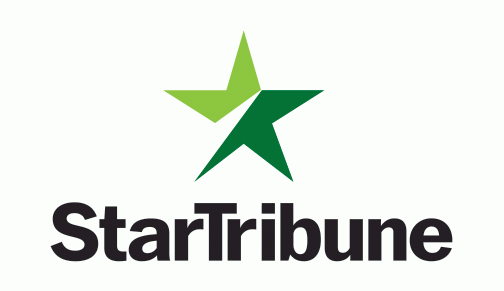
Star Tribune: Minneapolis reaps reward for building big-time stadiums
By Sid Hartman
http://www.startribune.com/minneapolis-reaps-rewards-for-building-big-time-stadiums/508303152/

Fans — 72,711 in all, according to the NCAA — flocked to U.S. Bank Stadium for the Final Four semifinals on Saturday. They packed the building again for Monday night’s championship game, which came only 14 months after Super Bowl LII, when Philadelphia defeated New England 41-33.
It’s hard to believe how much success Minneapolis has had in playing host to major sporting events over the past 14 months with the Super Bowl and Final Four, which concluded on Monday with Virginia beating Texas Tech 85-77 in overtime for the national championship at U.S. Bank Stadium.
For more than a decade, the arguments against any kind of public funding for a new Vikings stadium were based on the wrongheaded idea that stadium deals lined the pockets of owners but didn’t do anything for the citizens of Minnesota.
But the tremendous success that the city had with the Super Bowl and the Final Four have helped to really change how Minneapolis is viewed as a destination for major events and will surely pay huge dividends in the future.
Yes, the stadium naysayers for years said that a deal like the $1.061 billion package for U.S. Bank Stadium, of which the Vikings contributed more than half of that money at $551 million, simply couldn’t be done.
But this entire weekend, including Monday night’s NCAA championship and Saturday’s Final Four, were another resounding success not only for the stadium but for the state and downtown Minneapolis.
Earlier this year, Vikings President Lester Bagley told me that the team is still hearing from people around the NFL about what a tremendous job Minneapolis did with the Super Bowl in 2018.
“We were very successful, and the league knows it,” he said. “One of the best and most efficient Super Bowls ever and we have heard it directly from [NFL] Commissioner [Roger] Goodell on down.”
There is no question that the NCAA is going to have a similar feeling about the job that was done this weekend in coordinating its marquee event.
The fact that the NCAA will be back in 2022 for the women’s Final Four at Target Center only adds to the relationship the city is building with one of the premier sports groups in the country.
And the word from Melvin Tennant, who is the president of Meet Minneapolis, is that the city remains in close talks to try to get a potential NCAA College Football Playoff game. The odds are very good that WrestleMania will eventually be held at U.S. Bank Stadium, too.
Final Four return?
While the Super Bowl takes place in the winter and might take longer to come back to U.S. Bank Stadium, the Final Four is a spring event, and as such weather isn’t as much of an issue.
The NCAA has been diligent about having repeat hosts every five or six years. Indianapolis played host to the event in 2010 and 2015 and will have it again at Lucas Oil Stadium in 2021 and 2026. Houston played host to the Final Four in 2011 and 2016 and will do so again in 2023.
There is no question that a successful showing this weekend is going to bring the Final Four back to downtown Minneapolis, on top of other NCAA tournament games, such as the Midwest Regional at Target Center in 2021.
And the Timberwolves’ home arena will also play host to the women’s Final Four in 2022, the first time the event has been there since 1995. The 2019 version of that event just ended with a tremendous championship game on Sunday night in Tampa, Fla., as Baylor beat 2018 champion Notre Dame amid high drama. The total margin of victory in the three women’s Final Four games this year was 11 points.
The X Games has such a great relationship with U.S. Bank Stadium that they will be here four years in a row when it is held this summer and next. Next year will feature the NCAA wrestling championships at the stadium as well.
And on top of the success of major events coming to town, a bigger success is the redevelopment of the east side of downtown Minneapolis. Not only what is already there, including the Commons park and the Armory and the Wells Fargo buildings, but also the development that is ongoing.
That long-term development is going to be far more important than any championship, and it would not have happened without the stadium.

